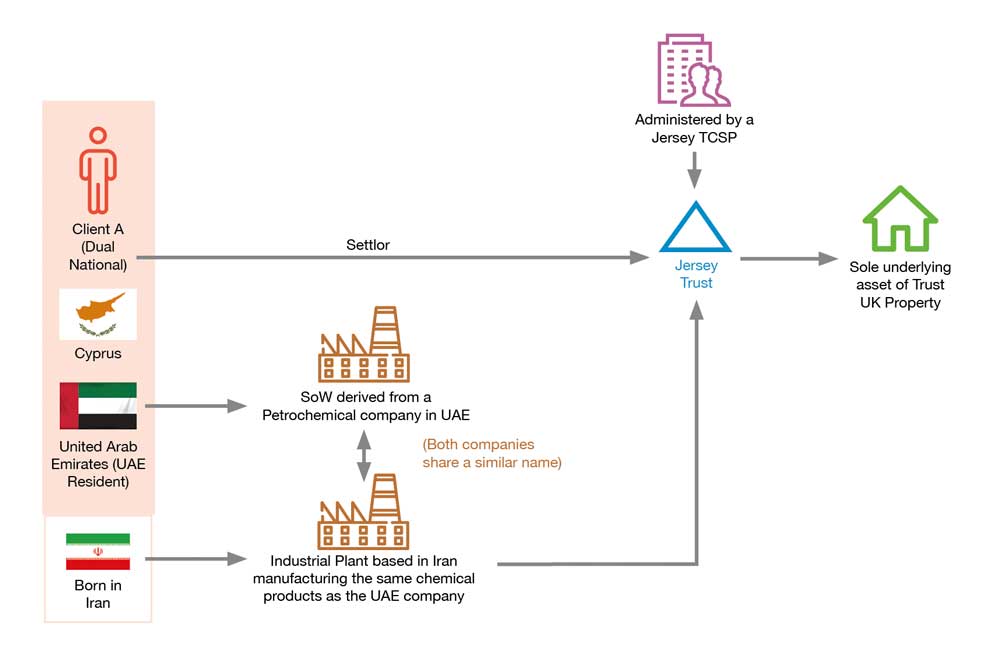Client A is the Settlor and Controller of a Jersey Trust administered by a Jersey-regulated Trust and Company Service Provider (TCSP), which ultimately owns a property in the UK through several underlying offshore registered corporate structures.
Client A has been a United Arab Emirates (UAE) resident for the last 20 years but was born and raised in Iran.
Client A owns a business in the UAE that is involved in petro-chemical trading and manufacturing textiles and carpets, which are traded with China. The Source of Wealth (SoW) / Source of Funds (SoF) corroboration held on file for Client A was limited, and he was not initially subject to any Enhanced Due Diligence (EDD) measures. During the sale of the sole underlying asset (the property in the UK), EDD checks were performed, which revealed that there appeared to be a familial link as follows:
Client A’s petro-chemicals/textile and carpet manufacturing businesses in the UAE were identified as being linked to an Iranian company, which was subject to US sanctions as an entity of potential concern for Weapons of Mass Destruction (WMD)-related procurement.

1 https://www.fatf-gafi.org/en/publications/Methodsandtrends/misuse-CBI-RBI-programmes.html
PF refers to the provision of funds or resources to support the development, production, or acquisition of weapons of mass destruction (WMD), including nuclear, chemical, and biological weapons. This type of financing can occur through various means, such as legal or illegal financial transactions, support from state or non-state actors, and the exploitation of financial systems to disguise the true purpose of the funds.
Proliferation financing poses significant threats to global security, as it enables states or organisations to advance their capacities to develop harmful weaponry that can be used for aggression against other nations or in terrorist activities. To combat this threat, many countries and international organizations implement strict regulations and monitoring systems designed to prevent and disrupt the flow of funds intended for proliferation purposes. This includes measures such as enhanced due diligence by financial institutions and stricter compliance with anti-money laundering (AML) and counter-terrorism financing (CTF) policies.
We continually strive to enhance the quality of the products we produce, from our typologies to reports, Insight papers to training guides. However, we can only improve if you share your feedback with us about what you think about them. This is your chance to let us know and we appreciate it your feedback. Click the navy button below or scan the QR code.
Tell us what you think >.svg)